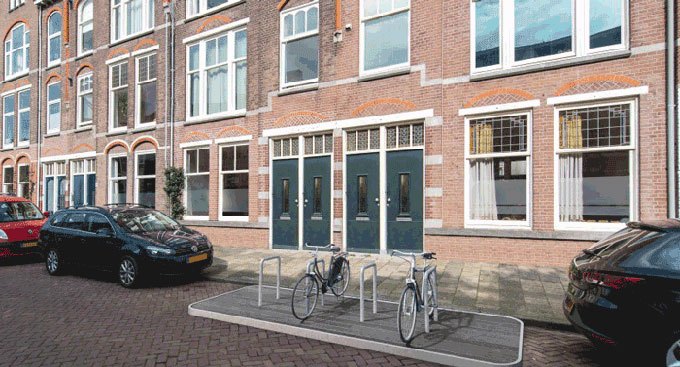
Most of us who live in cities become blind to the blight caused by endless rows of cars parked along every street. We become immune to the visual clutter and numb to the road danger to which they contribute. We forget that streets are for people.
In the 1970s, San Francisco became the birthplace of the parklet – a way of reclaiming road space in favour of people. The first one-day parklet was created in 2005 when a group fed a parking meter with coins, rolled out a length of turf and installed a potted tree.
We know all about creative reclaiming of road space. We created guerrilla on-street cycle parking when we built a pretend skip. The angry reaction to the launch of our so-called Biskiple offered a glimpse of how some motorists are under the misapprehension that they own the roads.
The problem is perennial and one that Winston Churchill attempted to tackle in the 1920s when he abolished Road Tax for fear it was giving drivers a false sense of entitlement. Fearing motorists would lay claim to roads by dint of paying for a small portion of their repair costs, he wrote: “It will be only a step from this for [motorists] to claim in a few years the moral ownership of the roads their contributions have created.”
However, the Dutch are less beholden to the car. The concept of the parklet has evolved into permanent extensions to their pavements. Temporary bicycle platforms are being introduced to see whether there is support to replace an increasing number of car parking spaces with cycle parking.
The bicycle platforms feature space for 8 bicycles. If there are no serious objections from residents after 3 months, the platform is removed and replaced by a wider pavement with permanent bicycle brackets. The temporary bicycle platform then moves to another street where a request has been made. The Hague has 10 ready.

Ethical insurance
Not only are we named by The Good Shopping Guide to provide the most ethical insurance in Britain, we campaign for sustainable transport. Sometimes that means protesting until a school gets the zebra crossing they’ve been refused, or running 60 roadshows this year to encourage people out of their cars, or fixing bicycles for free. Supporting this work is easy – you simply have to take out cycle insurance with us, cover that just happens to be excellent.
Unlike other insurers we never devalue your bike. And if you ride a carbon bike, rest assured we will never have a cracked frame repaired – we will always replace your bike with a new one. How many other insurers can say that? Find out more
..and it’s not just cycle insurance that we offer. We provide home insurance, cycle insurance, travel insurance and breakdown cover – all while putting concern for the environment at the heart of all we do.

George French
Be nice to have a variation of this with a tree on it in a raised bed for more residential areas. People often park right up to and even on corners causing real problems for visibility and road crossing, putting a tree there would make it a lot more visually appealing.
Philip
72 hours after this article appeared and not a single comment.
Roads and streets used to be for people.
That battle was lost a long time ago, and nobody now really gives a damn.
Now we all bow down to the motor vehicle.
Mike Croker
Suspect the Dutch platforms would need a redesign for the UK to stop 4×4 drivers claiming the space at either end, but nevertheless would seem to be an idea to pursue.
Stephen
Great article, very thought provoking. Thanks ETA!
Chris
Chipping away at the hegemony of the car.